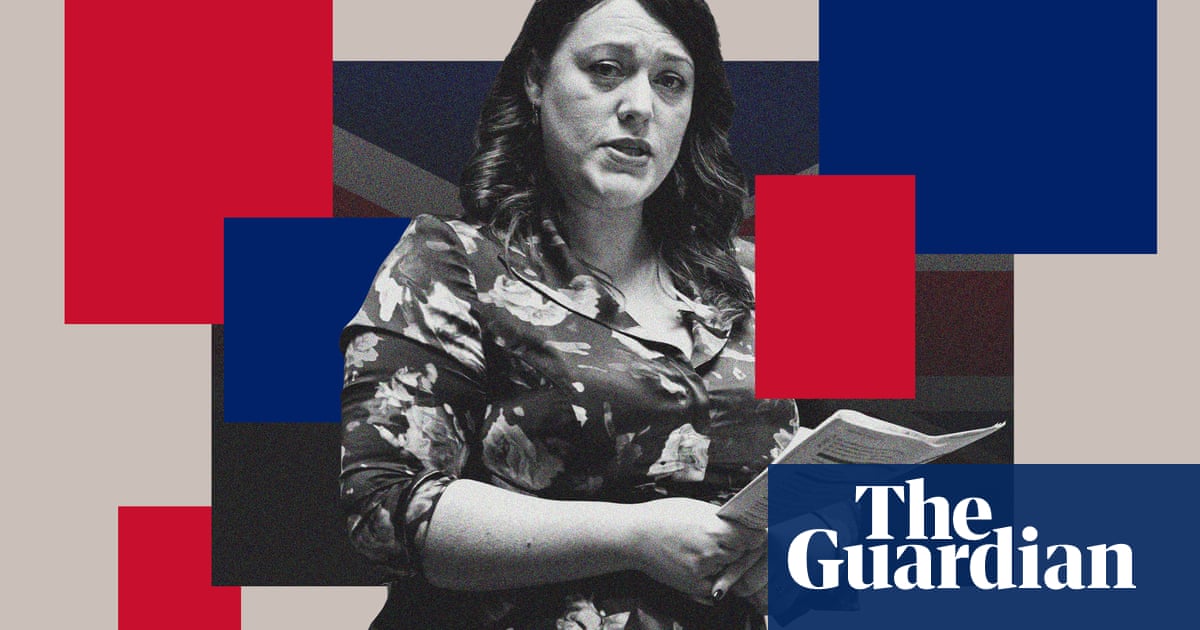Alicia Kearns, as a former Foreign Office official and an outspoken voice on foreign affairs, is an MP who understands how the department ticks.
She is also someone who does not give up easily, and with some freedom to operate since she is neither on Kemi Badenoch’s Conservative frontbench nor the Labour dominated foreign affairs select committee, a body she chaired until this summer.
That makes her a rarity in the Commons: knowledgable about foreign policy but free to express her often strongly held views. Kearns’ record heading up the committee was generally admired – but she has one unfinished piece of business to attend to.
With a small group of MPs and campaigners, she has set up an all-party parliamentary group (APPG) on arbitrary detention and hostage affairs. The aim is to pursue the recommendations of a report she helped publish called Stolen years, which made the case for the UK appointing a special envoy for hostage affairs. The recommendation was rejected.
This weekend, the Guardian reported calls from relatives of prominent detained Britons for the foreign secretary, David Lammy, to deliver on promises to help secure their freedom amid signs of resistance from diplomats.
Kearns is furious about the situation. “I have never come across a part of the Foreign Office that is more belligerent or unwilling to be reformed, or to accept reform in some way,” she says in an interview.
“The Foreign Office is always defensive, but I have never seen a level of defensiveness as I have on this. When we published our report it was quite incredible how unwilling they were to accept change.”
She insists the problem of British citizens being arbitrarily detained abroad is not a backwater issue. “I have always felt that the number one duty of governments is to keep people safe, and that is more true for the Foreign Office than many departments, and yet I felt that that was one of our biggest failings … It just felt like every family felt let down.”
She met Roger Carstens, the US special presidential envoy for hostage affairs, on whose role the UK special envoy idea is loosely based, and said she realised that American families “felt listened to, engaged with, supported, and that singular focus within government helped families”.
She added: “[They] took the geopolitics out of it and just focused on getting people home. That same singular focus of mission was missing for us.
“With the ambassadors, there is always the risk they will focus on the geopolitics and not getting people home. You need one person who knows what the trades are, knows what is likely to get someone out of a country, and knows why this country is worried about this person.”
Kearns said this required some flexibility around potential solutions such as prisoner swaps. “People should not be targeted because of their passports, and have their passport weaponised against them, so that a country can achieve its geopolitical aims. And that is what’s currently happening.
skip past newsletter promotionSign up to First Edition
Our morning email breaks down the key stories of the day, telling you what’s happening and why it matters
after newsletter promotion
“However, there are also realities that there are limited ways to get people home, and so therefore you have to identify how you are going to do that, and that unfortunately requires you to have the broadest possible toolbox available to you.”
Through badgering, Kearns had persuaded the last foreign secretary, David Cameron, to re-examine the issue, and he started to talk about a hybrid model. But the UK general election this summer put an end to that.
So far she has not been over-impressed with the new Labour government’s willingness to take up cases or bring in reforms. “Labour committed to this multiple times at the despatch box … [But] I know this civil service is saying ‘absolutely bloody not. We are absolutely not doing this.’”
But Kearns has the bit between her teeth, carrying out hearings with Jimmy Lai’s son and lawyers, and Nazanin Zaghari-Ratcliffe, who was incarcerated in Iran until her release in 2022. The MP plans to make fresh recommendations to improve the Foreign Office, and an annual review of its progress.
She also wants to work with other countries whose citizens experience similar hurdles. “The medium-term goal is early next year to hold an inter-parliamentary conference so we can bring in other parliaments, and say you need to have a similar focus so that you can support people from your country that are being arbitrarily detained.”
∎